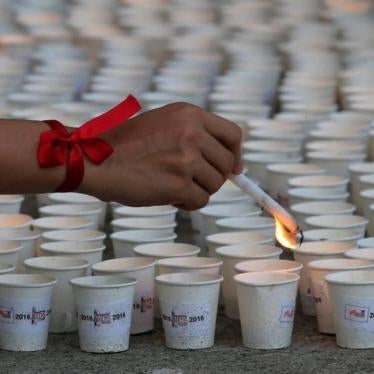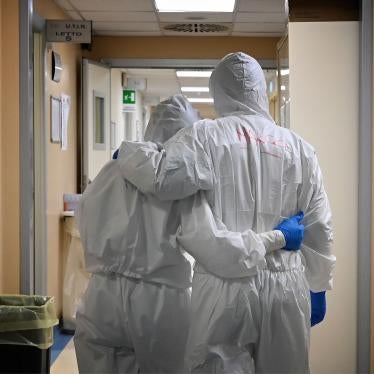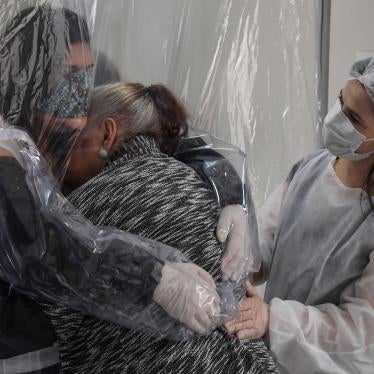June 19, 2013
Dear Minister,
On January 19, 2013, governments around the world agreed on the text for a new international treaty on mercury. The treaty is named the “Minamata Convention” in memory of one of the worst mercury poisoning disasters in history, which killed more than 900 people in Japan since 1956.
This treaty is a milestone in international efforts to protect people around the world from the environmental health and human rights consequences of mercury poisoning. We appreciate your government’s role in ensuring a strong treaty. As we now move into the next phase of this crucial process, we urge your continued support. In particular, we ask you to ensure that your government is represented at a high level at the diplomatic conference, October 7-11, 2013 in, Kumamoto, Japan, convened for states to sign the Minamata Convention. After the conference, we urge your government to take all steps possible to ensure ratification of the convention at the earliest opportunity.
As you know, mercury is a highly toxic liquid metal that attacks the central nervous system and is particularly harmful to children. It contaminates air, soil, and water, and can travel far.
One of the compelling reasons for joining this treaty is its recognition of the inherent risk of mercury exposure in artisanal gold mining. Children in particular can be most at risk for mercury poisoning in artisanal mining and small scale gold mining, as they frequently work with mercury themselves or are present during the burning of the mercury-gold amalgam. According to the International Labor Organization, more than one million children work in artisanal mining worldwide, and many more live in artisanal mining communities. Human Rights Watch has documented the use of mercury by child laborers—a worst form of child labor that should be eliminated immediately—in Mali, Nigeria, and Tanzania (see https://www.hrw.org/dangers-of-mercury). Our research also found that the health systems in these countries are not equipped to prevent, test, or treat mercury-related conditions.
The treaty addresses the use of mercury in artisanal gold mining, in various products and processes, and in emissions from industrial facilities, such as coal-fired power plants. In the area of artisanal gold mining—the sector that uses the largest amount of mercury and is among the biggest sources of mercury pollution worldwide—the treaty obligates governments to draw up mandatory national action plans. These national action plans must include steps to eliminate the most harmful forms of mercury use, promote mercury-free mining methods, protect children and women of childbearing age, and seek to improve the health of miners.
In addition to signing and ratifying the convention, we urge your government to take appropriate measures to address the consequences of mercury exposure without delay, before the treaty enters into force. In particular, we are asking you to address the problem of mercury use in artisanal gold mining globally by financially and technically supporting programs to:
· End child labor in artisanal gold mining, as well as end the use of mercury by children, as part of programs on mercury management or formalization of artisanal mining, or as separate programs;
· Carry out bio-monitoring of mercury levels in any domestic artisanal gold mining communities, including among children;
· Train health workers about the effects of mercury poisoning and its treatment, and in particular training health workers in any domestic artisanal mining communities;
· Enhance health system capacity to test and treat mercury-related conditions.
We look forward to your support on this important matter and we would welcome the opportunity to be in touch with your government. To discuss the Minamata convention and our other recommendations further, please contact Juliane Kippenberg (kippenj@hrw.org) or Jane Cohen (cohenj@hrw.org).
Sincerely,
Peggy Hicks
Global Advocacy Director
Human Rights Watch








